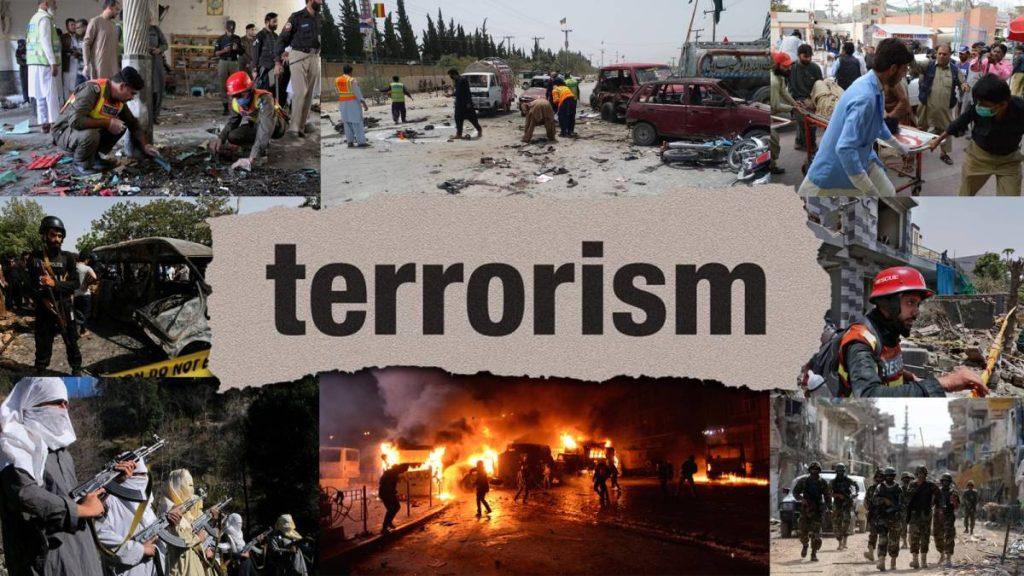
Saad-ul-Hassan
There has been a surge in terrorist attacks in the Khyber Pakhtunkhwa (KPK) and Baluchistan provinces of Pakistan in recent weeks. The most prominent suicide attack was at Shangla, KPK, where suicide bombers attacked a convoy of Chinese engineers, killing six, including 5 Chinese engineers and 1 Pakistani driver. The second most prominent attack was on the country’s second-largest naval base at Turbat, Baluchistan. In addition to this, the Gawadar Port Authority Complex was also infiltrated by the militants, causing a major blow to the security situation in Gawadar. These high-value targets have resulted in the halting of CPEC projects in various regions. Additionally, China has asked the South Asian country to ensure the security of Chinese people operating, an arduous task and a big challenge for Pakistan in the days to come.
Until now, Pakistan has used its hard power against the terrorists in Baluchistan and the KPK under Operation Zarb-e-Azb and Operation Radd-ul-Fasaad. These military and intelligence-based operations (IBOs) have been partially successful in combating terrorism, as the rate of terrorist attacks plummeted after the Zarb ul Azb and Radd ul Fisad. However, the rejuvenated wave of terrorist attacks has raised questions about the effectiveness of military power against terrorism. The use of hard power against terrorism had resulted in respite, but this also helped the terrorists reallocate their energy and resources to safe havens in Afghanistan. In addition to these, the killing of terrorists as a result of military operations starts the cycle of vengeance among the family of militants, consequently leading to a new generation of extremists and terrorists. The use of hard power should be applied in the short run; however, terrorism must be combatted in the long term by addressing the root causes of terrorism.
It is said that diagnosing a disease is 50% about curing the disease. Similarly, understanding the root causes of terrorism in Baluchistan and KPK will solve half of the problem of terrorism. According to research by Brookings, regions with poor social, political, and economic conditions are more exposed to violent extremism and terrorism. In the history of Pakistan, Baluchistan has always been neglected as an outcast child. According to the reports, more than 60% of people in Baluchistan live below the poverty line, with only 40% of children being educated. The people of Baluchistan suffer through the worst system of education, healthcare, infrastructure, and other basic facilities. The province ranks lowest in terms of social indicators, not only in Pakistan but also in South Asia. The people of Baluchistan feel outcast while seeing other parts of the country, i.e., Punjab, Urban Sindh, and Mainland KPK, enjoying favorable living conditions. This sense of deprivation often leads to violent extremism and eventually to terrorism.
The development budget of the province is more and more subjected to corruption by political elites, i.e., “sardars.”. The people of Baluchistan have made a meager political contribution to the electoral process and are hence deprived of their political rights. Moreover, the enforced disappearances of people lead to a dearth of confidence in the state and the rule of law; as a result, people are more appealed to by the separatist movements. The same is the case with the tribal regions of FATA and KPK, where the people are deprived of socio-economic conditions.
Having said that, the long-term solution to terrorism lies in the development of Baluchistan and the KPK. Baluchistan and KPK should be given the highest share of the development budget to address the equity gap. Along with the budget, there should be independent accountability to ensure these resources do not end up in “Sardars” pockets. These development budgets should mainly focus on poverty alleviation through social safety nets, education & skill development, and job creation.
Moreover, the worst healthcare conditions must be addressed by building new hospitals. Education development must be prioritized to address the low literacy gap; plus, young scholars must have standard universities in their region so that they do not have to travel to other parts of the country for higher education. The bad infrastructure in these regions should be addressed so that people in these regions can travel easily. The rule of law must be promoted in these regions, and enforced disappearances should be put to an end. All these together can serve as heralds for the restoration of the people of Baluchistan and the KPK’s confidence in the state of Pakistan. The betterment of the socio-economic conditions of these regions will tarnish the sense of deprivation among the people of Baluchistan and KPK; hence, they will be less inclined toward violent extremism and terrorist organizations.
The writer is a student of Defense and Strategic Studies at Quaid-e-Azam University, Islamabad.

